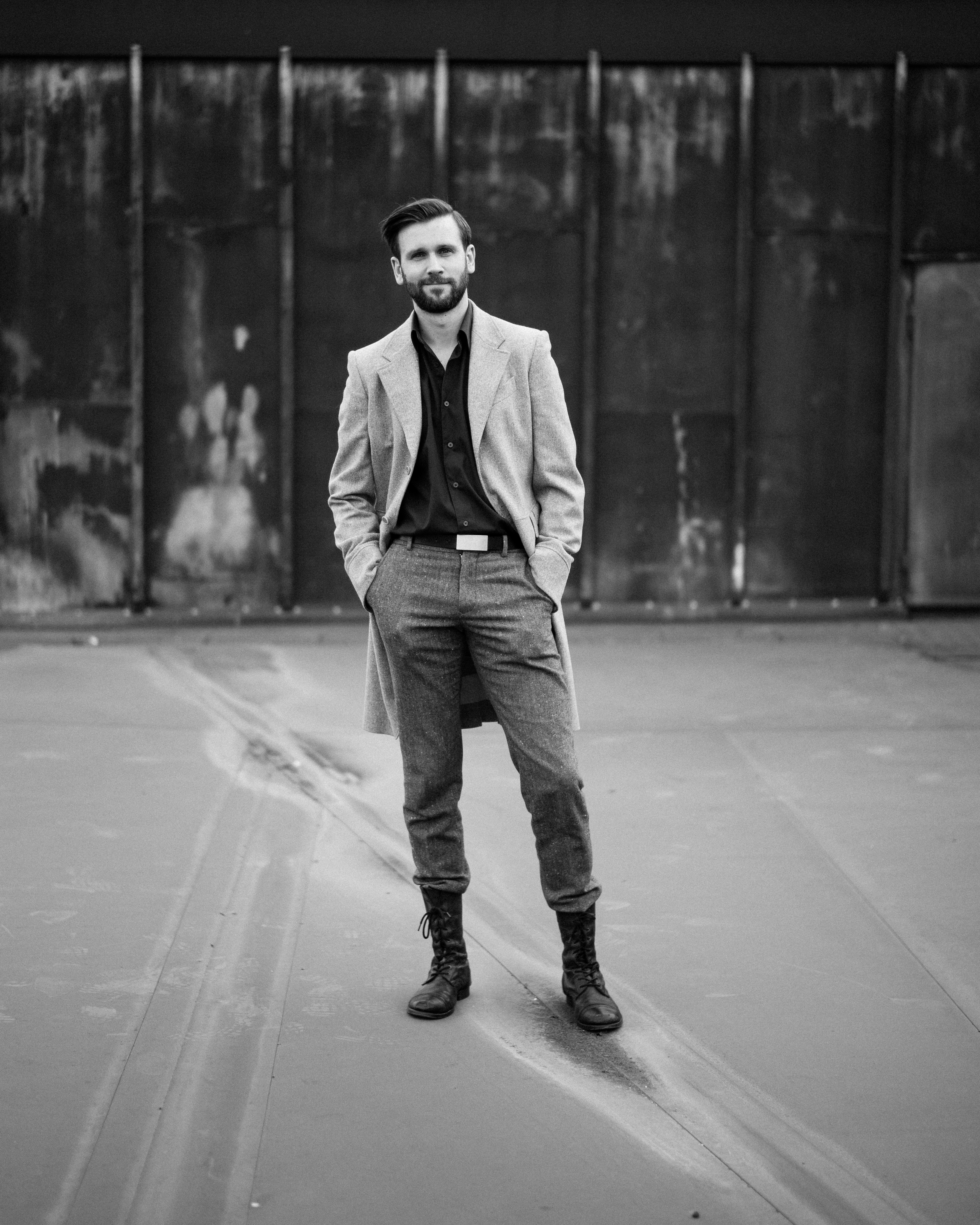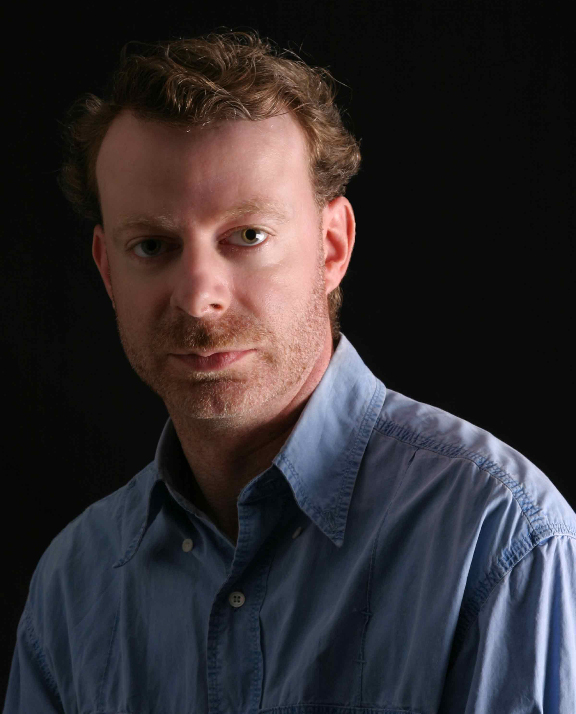The artistic skills learned by choristers at the National Boys Choir of Australia are skills they retain for life. Voice-change, or early retirement, doesn’t necessarily mean the end for NBCA choristers. All who depart the community do so with a skillset with which they can champion their lives’ paths. For two NBCA Old Boys, choir life has meant the beginning of pursuing a professional career path in their chosen artistic fields. Christopher Diffey is now an accomplished professional tenor based in Mannheim, Germany who is about to start a new season at the Nationaltheater. Jonathan David Little is an acclaimed composer based in the U.K. and has just released his latest body of work on a CD titled Woefully Arrayed. Here are two Old Boys telling the story from both sides of the artistic ‘fence’, each with rich experience and advice to choristers who are considering turning their art into a career.
Christopher Diffey – Tenor
Singing has been an integral part of your life since you were 9 years old. What drew you to singing, and what drives you to pursue singing professionally?
“I was originally introduced to music through my mother, who was a pianist and a music teacher. I think the thing that made me want to pursue it as a career, and in particular singing, is that it allows the expression of emotion in a way that we aren’t able to do in our regular lives. Also, as a discipline much like sport or any other artistic/scientific pursuit, it allows you to attempt to master something that will forever be ‘un-masterable’. That constant effort to improve and perfect what you do as an individual is the thing that drives me.”
You are currently based at the Nationaltheater in Mannheim, Germany, performing as a tenor in the theater’s 2017/2018 season (soon to begin the 2018/2019 season). What has been your career highlight to date?
“There have been a few highlights. The most recent one that comes to mind was my debut as Tamino in Die Zauberflöte. To perform this role – in German, with German dialogue, in a top German opera house – was both daunting and exhilarating, and something I was very proud of.”
You have lived and finished your studies in London (in art song technique through to opera), and now you’re based in Germany. Is it mandatory to leave Australia in order to pursue a career as a tenor?
“I think it would be safe to say if you want to have a career as a top-level opera singer, at some point you will need to move abroad. That’s not to say that you have to study in Europe or America. Though, I think this is certainly the best path, as it provides access to the highest level of opera pedagogy. However, in terms of a performing career, in my opinion, this is the only place where you can make a full-time living purely as an opera singer, without having to rely on a secondary job to help supplement your income. Europe is also undoubtedly where the greatest singers perform. As with any career, if you can work at the highest level with the best, the sense of achievement is that much greater.”
There is a fine line between doing what you love as a hobby and pursuing what you love as a profession. How do you maintain your love for what you do?
“The thing I find with performing opera is that there is such a rich, centuries-old tradition and canon of work that we are forever performing new pieces and new roles. Even when performing a role for a second/third/fourth time – when it is in a new production with new colleagues – it is inevitable that you will discover something new about the piece. This job is forever changing and it is impossible to settle into the mundane and take things for granted. Your singing voice is something you will never truly master, something which is always changing and evolving. So, there is always a new challenge.”
What do you still want to achieve in your career?
“The next role debut for me in Mannheim is my first foray into Wagner, and it is always exciting when you get to perform a new composer for the first time. I guess that is something I want to ‘tick off’ on my career – performing a Wagner role. Following that, I guess my dream role would be something like Lohengrin, though I am loath to have absolute goals like that, and prefer more to let my voice and career take me where they will. Enjoy the ride!”
What qualities do you think a chorister needs in order to ‘make it’ as a professional tenor/performer?
“I think you obviously need focus and dedication, as well as the support of your loved ones – and some level of ability doesn’t go astray! In my opinion you always need an ability to have fun with what you do. Be the one that makes a long rehearsal fun and positive. Always try and smile, and (try to) always say yes. Be a warm, supportive colleague. We can only create our best work together, and we can only work together if we’re all having fun.”
What advice can you give to a chorister, who is thinking about pursuing a path like yours as a profession?
“Try and be as well-rounded a student as you can be. Pursue everything that interests you, rather than making singing the ‘be all and end all’. Always follow the path that presents itself, rather than trying to create it. I didn’t start out with a grand plan to become an opera singer, but this is where I ended up because I strived to be the best version of myself. I’m always happy to think of my time with the NBCA, and they certainly planted my feet firmly on the path of music.”
To learn more about Christopher, visit his website at: www.christopherdiffey.com

Jonathan David Little – Composer
As an esteemed composer (one review of your work attests: ‘a professional musician of outstanding ability’), what drew you to pursue a career as a composer?
“Composing is something I have always done. For me, it is so fundamental to allow oneself the time and space to create beautiful and spiritually ‘nourishing’ sounds. Having said that, it was many years before I felt able to call myself ‘a composer’ because you really do have to earn your stripes. There can’t be any fudging, pretence, or falsehood in art, at least if you wish it to last. It seems to share with religion this desire to find a channel towards absolute truth, and to speak directly to the heart of the things that most matter. Moreover, in a practical sense, it can take years to find a unique and meaningful creative language, to gain sufficient technique, experience and knowledge of music, and then finally begin to become recognised for having created a distinctive body of work which, ideally, can then generally be greeted well by audience, performers and critics alike.”
Can you describe your journey from being a chorister in the NBCA, a performer then becoming a contemporary classical composer?
“With hindsight, all these things indeed seem a natural progression. You can’t compose well without having been ‘inside’ choral and instrumental music as a performer, and understand all the technical challenges. The National Boys Choir [of Australia] was a superb training ground – not least for the ears – for experiencing different styles of music, for working closely alongside others in the pursuit of very high standards. But before you can even think of composing, you need to learn how to listen. The journey has undoubtedly been arduous and continues so! The mental gymnastics involved can be quite gruelling. But it is also infinitely rewarding. I don’t think it is overstating the case to say that many serious performers and composers train for more years than some surgeons. The learning process never ends, at least if you wish to keep pushing boundaries. You not only have to contend with an immense amount of disciplined work and learning, but also with steering an honest course towards ambitious goals and aiming to stay largely on track while coping with all the other things life throws at you.”
What has drawn you to music in your life; what is it about music that lures you?
“A life without involvement in music, or indeed any or all of the other arts in some shape or form, can tend only towards cultural and spiritual poverty. Art teaches us so much about all other aspects of life and what it is to be human. And we can share so much through it. Music is so instinctive and [such a] direct form of communication that it can soothe and console us in all our possible moods and humours.”
Your work is known for its ‘mystical beauty, intensity and richness of material’. Can you describe your creative process? What inspires you to create?
“For me, ‘atmosphere’ is all: both in trying to encapsulate it during creation, and in subsequently fashioning the finished ‘product’, so that it can permanently evoke the intended ‘aesthetic atmosphere’. No one put it better than the painter Tom Roberts when he said that ‘by making art the perfect expression of one time and one place, it becomes art for all time and of all places’. The trick is, of course, to find, assemble, and fuse together all the elements necessary to produce that ‘perfect expression’! But no matter what contemporary elements distinguish a work, the best pieces seem always to be grounded in a solid technique derived at least, in some part, from past traditions.”
You were the first Australian-born composer awarded the John Clementi Collard Fellowship, among other important awards. What has been your career highlight to date?
“The Collard Fellowship is bestowed by The Worshipful Company of Musicians, one of the ancient London Livery Companies (known initially as ‘The Fellowship of Minstrels’ and later as ‘The Musicians’ Company’) – a specialist guild for musicians – dating back at least to about 1350. On reading the list of past Collard Award holders, I think it was possible for me at last to simply and unequivocally say, ‘I am a composer’. It is probably for others to say when, especially as a creator, you are worthy of recognition in your field, and not a thing you can just state, or take for yourself. Of course, fine and successful performances make for great milestones, and wonderful memories, too. And in 2017, I was appointed first Professor of Music Composition and Music History at the University of Chichester which is now, I understand, the largest University Music Department in the UK. Such things are important ‘markers’ of progress and distinction but the crucial thing, in terms of art, is always to stay focussed on the quality of the latest work you are creating.”
What have you yet to accomplish in your career?
“To hear music you have created, performed or recorded by fine solo artists, ensembles, choirs and orchestras is hugely rewarding and you are privileged to have music performed by increasingly well-recognised artists as your career progresses. Equally, however, discovering that amateur groups in different countries are starting to experience your music is just as important, too.”
You are currently based in the U.K. When did you leave Australia to pursue music, and do you think it’s mandatory to leave Australia to pursue this line of work?
“It’s not mandatory to leave Australia, but I think it is mandatory in all possible ways to be exposed to the best music-making wherever you can find it, and to learn from the best, directly or indirectly, as applicable to your own personal aims and goals. So, you may well have to travel at times to gain new experience, and start to realise new possibilities. I became based more overseas from the age of 30, as I followed opportunities. It is also important at least to try to compete with the best you can find anywhere – just as any athlete might.”
What brings you the most joy or creative satisfaction in your life – singing or composing?
“Ah! They are both joys, but of different types! The first is in some ways more direct, physical, and immediate. The latter, more visceral, mystical, and ongoing. In creating something of lasting value, that can, in turn, be ‘re-created’ (in other places and times), you do at least leave – as Samuel Beckett chose to phrase it – ‘a stain upon the silence’. And for me, this ‘stain’ is a sort of emotional distillation of the particular qualities of the era through which you have lived, of moments that are forever passing away. Is it not astonishing that a collection of notated symbols can carry that message through different historical periods? So it is, I believe, that only through art can you begin to imagine, and importantly feel, what the past experiences of other human beings have been like. This is why art is so profoundly humanising, so civilising, and so able to create empathy between peoples – often when nothing else can.”
You were Principal of the UK’s Academy of Contemporary Music. From an educator’s perspective, what qualities do you think a chorister needs in order to pursue music, even composing, as a career? What advice would you give?
“Be open to experience, and to wonder, learn to listen and to appreciate beauty and complexity, and learn all you can of technique as it genuinely assists you. Be generous and honest in your performing, as in your music writing and arranging – while always striving to improve.”
Do you have any future plans you can reveal?
“Soon, I would like to write some solo songs, some more choral works that are very suitable for amateur choirs and also to increase my orchestral output. While I have long-term goals for pieces I would like to work upon, what, in practice, often determines which is the next priority will most likely be a fairly definite performance opportunity, or some other external stimulus.”
For a sample of Jonathan’s best-known choral composition to date, visit www.youtube.com/watch?v=KdV7eKZiGhg&feature=youtu.be.
Learn more about Jonathan’s story at www.jonathanlittle.org .

